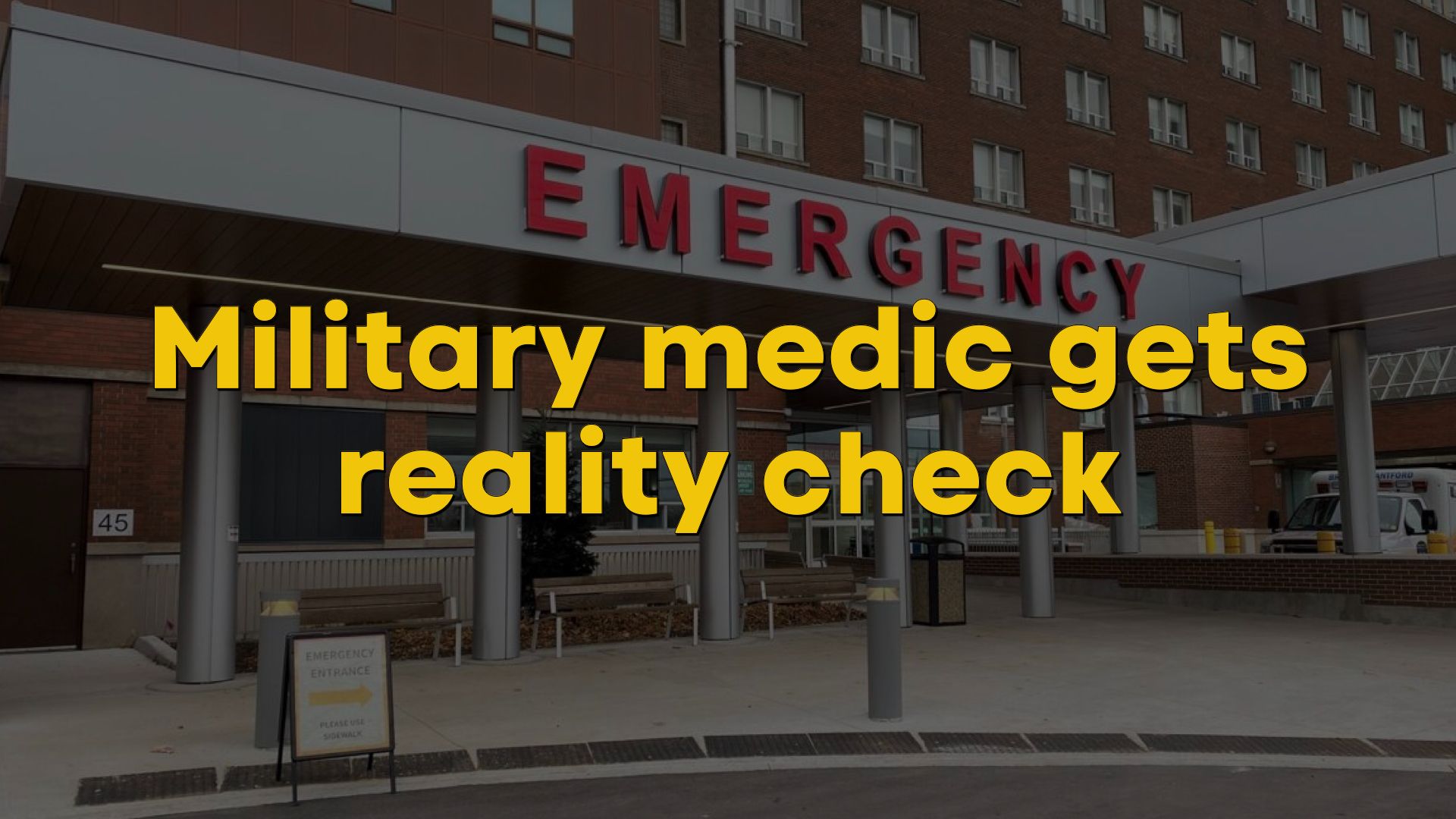Military medic gets reality check

I got back from deployment where I worked in a MASH-type of unit, separated from the military, and got a job at a local hospital. I assumed it would be a great fit and would be a lot like the military— minus all the military stuff.
Wow. I was wrong.
Nurses and others never responded with the same urgency— unless someone was literally dying on their table. It wasn’t unusual for me to have to ask for a supply multiple times… and then watch someone leisurely get up and retrieve it.
They weren’t being intentionally disrespectful when they did, mind you (which is what I thought at first). They were just… well, there was no sense of “life or death” urgency— the kind of intensity and focus you see when you’re deployed close to the front lines.
One day I started yelling. I screamed at the staff (my peers) as if I out-ranked them and could order them around, AND THEN I chastised them for now doing the job up to standards. After all, that’s how I would have handled things if it ever came to it while in Baghdad.
I got written up for that…
I also noticed that the nurses not only moved slower, they were also squeamish about overstepping bounds. They always had to look things up, ask a supervisor, or talk to the family. They needed permission for everything.
Sometimes, their hesitance to make a decision made sense. Most of the time it did not.
There was more to it than just those things, though.
The differences didn’t just include how the staff acted— civilian nurses and doctors— it went all the way down to the patients.
For instance, significantly overweight patients often blamed doctors for their heart attacks, never giving a thought to the fact that their diet and complete lack of exercise were major factors.
Military patients never responded like that. They were always grateful for everything we did. (And it’s honestly easier to “work on” someone who is fit than someone who is not.)
Also, we were hamstrung by so many regulations as to what we could do or not do in a civilian hospital…
But when I was serving, we had complete autonomy to do whatever was best for the patient— so save their life and/or heal their wounds by “any means deemed necessary.”
Civilian patients— and their families— often treated us like we were maids or a wait staff and that the hospital was a hotel. They consistently asked for more ice and special drinks and other items. The time we spent doing that always took away from the time we could focus on the legitimate health needs of our patients.
Like I said, military patients were different. Rather than complaining and asking for “another pillow” or a better TV show, they were grateful for the help we gave— and actually helped other patients.
It was not the same job.


